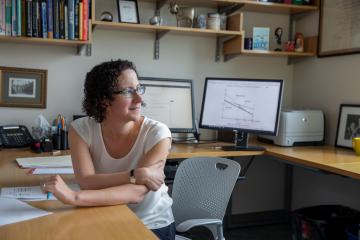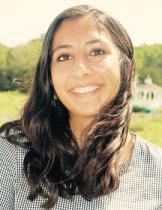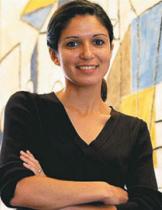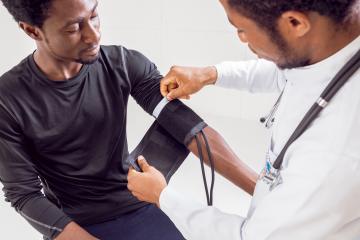
Affiliate Spotlight: Marcella Alsan on her recent MacArthur Fellowship award and researching racial disparities in health

Marcella Alsan is an economist, physician, and professor of public policy at Harvard Kennedy School. She is also the co-chair of J-PAL North America’s US Health Care Delivery Initiative. She was recently awarded a 2021 MacArthur Fellowship, "a no-strings-attached grant for individuals who have shown exceptional creativity in their work and the promise to do more."
How did you learn you had won the MacArthur grant? What was your immediate reaction?
I learned about the MacArthur grant through Cecilia Conrad, an economist who heads up the MacArthur fellows as well as other initiatives at the foundation. She actually wrote to me saying she wanted to chat about racial equity and maternal health, and I thought: great, that’s important. In her signature, it says MacArthur Fellows and 100&Change, but nothing but thoughts on maternal health and racial equity crossed my mind. We set up a time to meet and I thought we were all set, but then she reached out to me again to see if we could chat one-on-one before the meeting. I was literally in the car waiting for my daughter to come out from her first day of school when we connected. She said, “I actually wanted to let you know we are awarding you a MacArthur Fellowship.” I couldn't believe it. It was shocking and exciting all at the same time.
We’ve heard you are only allowed to tell one person about the award until the official announcement. Who did you choose to tell, and how hard was it to keep it a secret from everyone else?
The person who was in the car with me at the time was my husband, so he heard my discussion with Cecilia. His eyes were popping! So, he was the default person to learn about it. He definitely would have been the person that I chose anyway. He's a physician and didn’t know as much about this award. As he searched on his phone to learn more, he was like, "Wow, wow, wow." We were both pretty incredulous, and then we had to put on our poker faces because the kids were coming into the car and I had to jump on another call.
What was the day of the announcement like for you?
The day of the announcement was a blur. I happened to have a very busy teaching schedule, so I was just doing my regular prep and meetings, including meeting with a guest lecturer earlier that morning. Then I received an email from Heidi Williams, a colleague from Stanford University, seconds after the announcement that was all exclamation points and I thought, “Okay, people know now!” What was incredible to me was how many people congratulated me. It was heartwarming to see so many economists and physicians reaching out, including people I didn't realize even knew of me or my work, and many people whom I have admired for years. I also heard from my alma maters and former employers, including Loyola University, Harvard University, Stanford University, the Infectious Disease Society of America, and the NBER DAE leadership. My Dean at the Kennedy School put a very nice event together that day for me as well. We all raised a glass together with our masks on, and that was really memorable.
The MacArthur Foundation specifically highlighted your work exploring racial disparities in health outcomes and healthcare usage. Through a J-PAL-funded study, you found that racial concordance between patients and physicians has a positive effect on the take-up of preventive services by Black men. What drives you to work on these issues, and what changes in policy and practice do you hope studies such as these will spur?
The funding was not coming from any other place to do the Oakland study, so it was pivotal to receive that support from J-PAL North America. My preferences have been pretty consistent over time. I really care about the health of people who have fewer resources. I think that health is just so important. It's different than other commodities—it’s fundamental to wellbeing and opportunity. To be healthy is to have opportunity. This has always been my interest, and it's evolved over time from focusing on direct first line provision of care to thinking about it more from a macro level. But the underlying interest has always been the same, the research agenda has always been the same. It's just looking at different ways to try and understand and improve things.
Are there any new projects or issues that you’re eager to explore now that you have a flexible source of funding?
I think this project will help me take on additional risks and do research without strings attached. It’s hugely helpful. I am starting a Health Inequality Lab at the Harvard Kennedy School. I’m very excited to be working on models of structural racism and health care with Damon Jones and Crystal Yang and trying to improve the health in correctional facilities with Crystal. A lot of this work has been co-funded with J-PAL, and I remain so grateful for that support.
Related Content
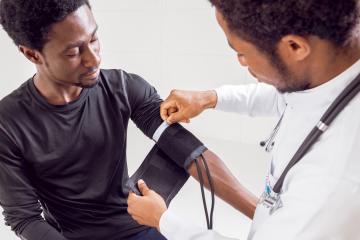
Matching Provider Race to Increase Take-up of Preventive Health Services among Black Men in the United States

Texas Tech agreement to abandon race in med school admissions will worsen health disparities
